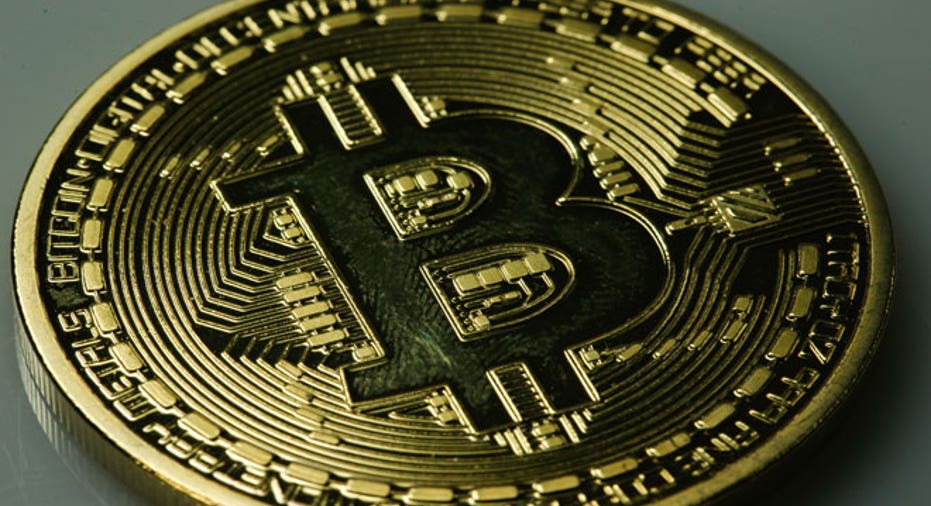Will Bitcoin Regulate Itself Before It’s Too Late?

Bitcoin’s decentralized and unregulated nature has appealed to millions of people who are understandably skeptical about government interference in their finances.
But the debacle surrounding Bitcoin exchange Mt. Gox serves as a fresh reminder of the downside to this off-the-books, anti-regulation approach. In a blow that regulated banks would have likely avoided, Mt. Gox may have lost some $365 million worth of the crypto currency.
The incident raises serious questions about the ability of Bitcoin or a rival digital currency to succeed without a government or industry-installed safety net in place to protect currency holders.
“More assurance will be needed -- and should be demanded. I would not advise someone to jump into this Bitcoin currency with no regulatory oversight and no significant institution with a lot to lose standing by it,” said Moshe Cohen, a professor at Columbia Business School.
Already, regulators are swirling around Bitcoin in the wake of the apparent collapse of Tokyo-based Mt. Gox, which shut down its website this week and has halted withdrawals since February 7, leaving the exchange’s customers in the dark about whether they will ever see their money again.
According to The Wall Street Journal, Mt. Gox received a subpoena from federal prosecutors asking the company to preserve certain documents among other things. Japanese regulators are also taking a closer look at Bitcoin.
The calls for greater oversight, whether it be public or private, is not a knock on the innovative nature of Bitcoin itself, which is sometimes dragged down by the flaws of third parties like Mt. Gox.
“I think private firms will pop up to deal with some of these shortcomings. That is probably a more efficient way to solve this issue.”
Cohen compares Bitcoin with a technologically-advanced robotic surgeon.
“I’d prefer having a robot performing precise surgery on me than an old surgeon with shaky hands. But I do want oversight. I want the hospital there and the doctor in some proximity because who knows how well the robot has been programmed,” he said.
No Fed Rescue Here
But Bitcoin as it is currently structured lacks that oversight. That’s why security gaps or even potential fraud at a third party could cause Bitcoin holders to lose their entire investment and erode the currency’s value.
Despite the recent incidents, Bitcoin has proven itself a very efficient way to transact money, especially when considering the fees associated with traditional payment methods.
Yet like most young technologies, Bitcoin has some serious drawbacks.
One shortcoming is incredible volatility, which makes it difficult if not impossible for businesses to hold the currency for any significant length of time.
“It’s a very efficient way to transact, but it’s an unreliable store of value,” said Cam Harvey, a Duke University professor who teaches about crypto currencies.
Harvey estimates Bitcoin is about 20 times more volatile than the U.S. dollar and 10 times more volatile than gold, itself a volatile form of currency. He noted that twice last year Bitcoin experienced swings of 50% in value in a week.
The other major shortcoming of Bitcoin is the lack of insurance, which helps explain the very low fees.
“If someone steals my debit card, that’s the bank’s problem. If someone robs the bank or causes it to collapse, then the FDIC will insure my deposits up to a certain amount. I’ve got multiple layers” of security, said Harvey.
Fearing bank runs, the FDIC raised its deposit insurance limit during the financial crisis to up to $250,000 per account owner.
“Mt. Gox reminds us of the downside of decentralized, unregulated currencies. There is no Federal Reserve or IMF to come to the rescue. There is no deposit insurance,” said Harvey.
Industry-Led Safety Net?
But the incident could also be the spark that forces Bitcoin to embrace a safety net that protects consumers.
One possible solution would be for a private company to fill the void by providing insurance for Bitcoin accounts for a fee. Harvey bets there are probably half a dozen firms working on that kind of model right now.
“Given that fees are so large with traditional transactions, there is so much room for something to be offered for a fee but far cheaper than what we pay today,” he said. “I think private firms will pop up to deal with some of these shortcomings. That is probably a more efficient way to solve this issue.”
Cohen said an industry monitor could also be installed to ensure exchanges are being run in an organized way and fairly matching up buyers and sellers.
“We want some blend. We don’t want this anarchy of development of a whole new world with no currency, no government and no banks. That’s a little presumptuous,” Cohen said.
The Mt. Gox problems will clearly bolster the case of regulators like the New York Department of Financial Services, which has already been mulling a regulatory framework for Bitcoin.
Benjamin Lawsky, the NYDFS superintendent, said on Twitter that problems at Mt. Gox underscore the fact that “thoughtful regulation could play” an important role in “protecting consumers with funds at virtual currency firms.”
'Can't Regulate Away Incompetence'
But Bitcoin backers are sure to resist overbearing regulation.
Even though his Bitcoin wallet Coinapult stands to lose $250,000 if Mt. Gox is insolvent, Erik Voorhees argues government regulation is not the answer.
“Let’s be honest, you can’t regulate away incompetence and failure. That’s what people try to do in the U.S. and you’re left with these too-big-to-fail companies,” Vorhees told FOX Business.
Harvey said one area government may be needed is to force greater transparency among Bitcoin exchanges. A clear look at how risky each exchange is would be tantamount to knowing why your bank is offering exceedingly high interest rates on deposits and CDs.
“Ideally, this would be driven by industry, but that could fail,” said Harvey.



















